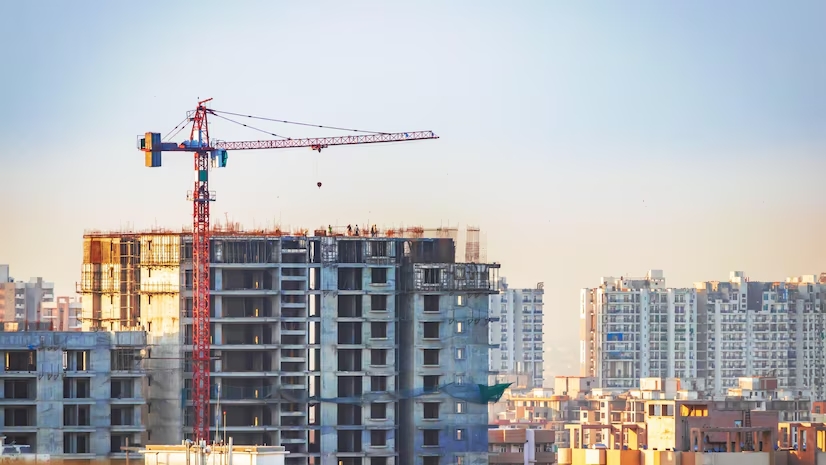
Mumbai, 20th May 2025: In a landmark move to tackle Maharashtra’s urban housing crisis, the state cabinet led by Chief Minister Devendra Fadnavis has approved the ‘Majhe Ghar – Majhe Adhikar’ (My Home – My Rights) housing policy. With a massive investment of ₹70,000 crore, the state aims to construct 35 lakh affordable homes by 2030, making it one of the most ambitious housing efforts in Maharashtra’s history.
The new housing policy comes nearly two decades after the last one was published in 2007. Despite drafts being prepared in 2015 and 2021, this is the first comprehensive policy to be officially adopted since then.
Four Pillars: Affordability, Inclusivity, Sustainability, Resilience
The policy is anchored on four core principles:
- Affordable housing for economically weaker sections (EWS) and low-income groups (LIGs),
- Inclusive development targeting senior citizens, working women, students, and industrial workers,
- Sustainable and green construction techniques to mitigate climate risks,
- Resilient infrastructure that can withstand natural disasters such as floods and earthquakes.
Key Highlights of the Policy
- Social Inclusion & Rental Housing:
- Special schemes will provide rental housing for women, students, and industrial workers for up to 10 years. Corporate Social Responsibility (CSR) funds will be encouraged for social housing initiatives.
- Massive Construction Goal:
- The state plans to build 35 lakh homes in five years and 50 lakh homes in the next 10 years. By 2026, a state-wide survey of housing demand will be conducted to streamline execution.
- Digital Governance – SHIP Portal:
- A centralised State Housing Information Portal (SHIP) will ensure transparency in approvals, geo-tagging, fund disbursement, and progress tracking, with integration into existing platforms like MahaRERA and PM Gati Shakti.
- Land Bank Creation:
- Government bodies like MIDC, MSRDC, and Forest Department will coordinate to create a land bank for residential development by 2026.
- Special Category Housing:
- Custom housing will be developed for government employees, freedom fighters, ex-servicemen, journalists, artists, airport staff, and even relatives of hospital patients in metro cities like Mumbai.
- Walk-to-Work Vision:
- To reduce urban sprawl and commuting stress, the policy proposes residential zones close to industrial hubs. Up to 30% of land in MIDC areas will be reserved for housing.
- Redevelopment Reforms:
- Self-redevelopment will be promoted with a ₹2,000 crore fund. A new Supreme Grievance Redressal Committee will mediate disputes and ensure timely completion of redevelopment under MHADA and DCPR regulations.
- Slum Rehabilitation Focus:
- Use of central government land, promotion of cluster redevelopment, and mandatory registration of agreements with slum dwellers are among measures to boost progress in SRA (Slum Rehabilitation Authority) projects.
- Green and Disaster-Resistant Construction:
- The policy promotes green buildings with heat-resistant materials and disaster-resilient technologies under the Global Housing Technology Challenge (GHTC). A dedicated Construction Technology Research Centre will also be established.
- Mega Housing Fund:
- The government will set up MahaWas Niwas Nidhi, a ₹20,000 crore fund to support major housing projects.
- Private Participation Encouraged:
- Affordable rental housing projects will be carried out through MHADA, CIDCO, and private developers, with incentives for participation and faster clearances.
- Inclusive Housing in Urban Areas:
- All metropolitan region development authorities will implement the Inclusive Housing Scheme, with regular updates published on the housing department’s portal and apps like MahaAwawas.
- Cluster and Stalled Project Revival:
- Of the 228 stalled redevelopment projects in MMR, joint ventures with MHADA, CIDCO, MIDC, and others will be fast-tracked to bring them back on track.
- Legal and Legislative Backing:
- Amendments to the Maharashtra Regional and Town Planning Act and other relevant laws are proposed to accelerate implementation, particularly outside Mumbai.
A Bold Step Towards Housing Justice
The Maharashtra government has appointed premier institutes such as IITs and IIMs as knowledge partners to help address changing urban, economic, and climate-related challenges.
This multi-pronged policy not only seeks to address housing shortages but also aims to transform Maharashtra’s urban landscape by making homes more accessible, liveable, and future-ready.
With strong digital monitoring, transparent governance, and robust financing, the ‘Majhe Ghar – Majhe Adhikar’ policy is poised to redefine housing in Maharashtra over the next decade.





